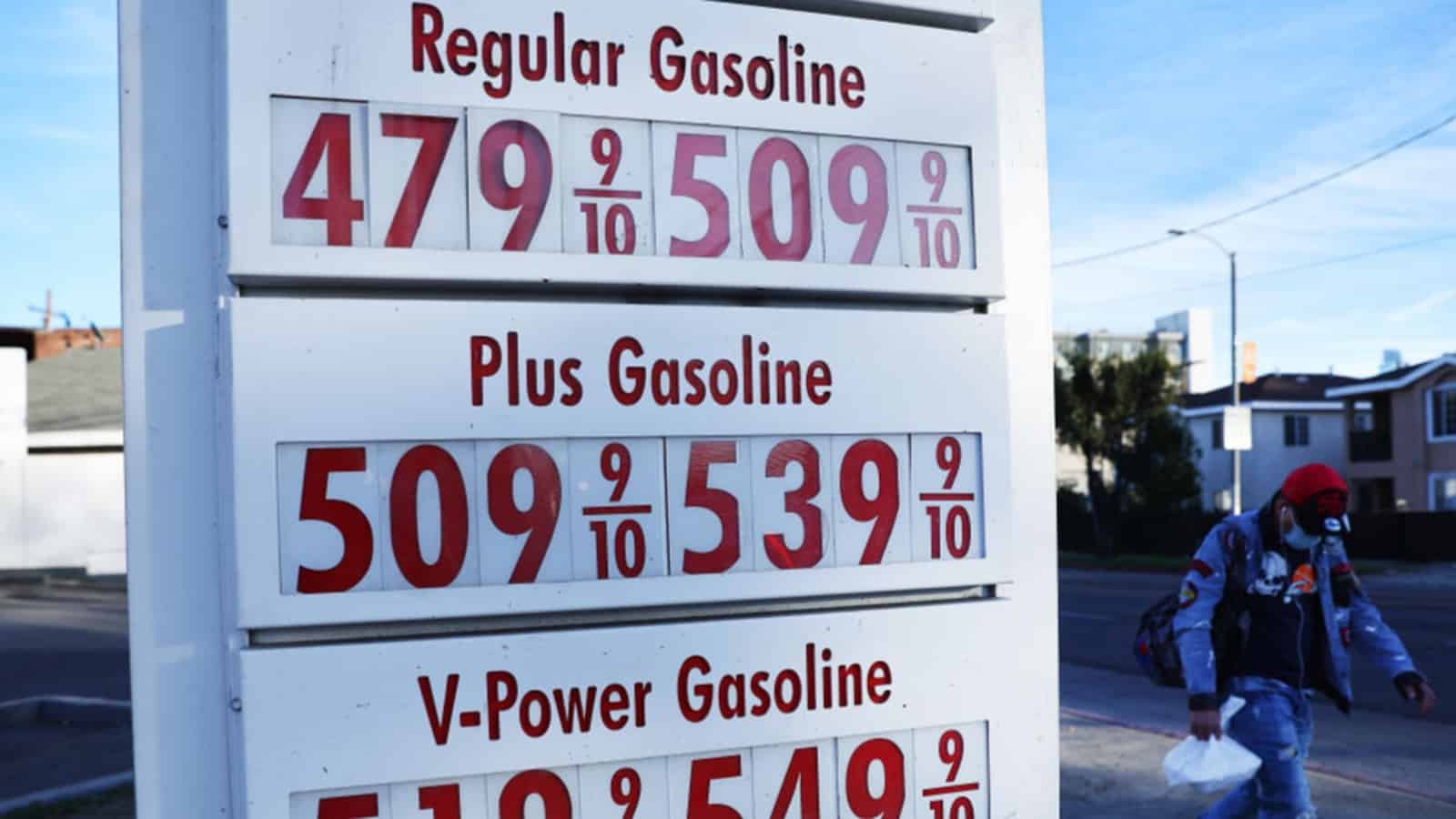Oil and Gas Companies Aren’t to Blame for Pump Prices
Take Action
Support Energy Security
Under the guise of lowering gas prices, Democratic leadership in the House and Senate is ramping up legislation-creation efforts and railing against oil and gas companies, according to POLITICO Pro (subscription), The Wall Street Journal (subscription), E&E News (subscription), Punchbowl News, CBS News and Bloomberg (subscription).
What’s happening: In fact, gas prices are dramatically on the rise owing to a combination of factors, including lowered U.S. production, the same supply chain issues that have disrupted the shipment of other goods, limited production by OPEC countries, continued fallout from cyberattacks and Hurricane Ida, a shortage of tanker drivers and more, according to CBS News.
- But the situation is neither as black and white nor as predictable as President Biden would have it.
- “Individual retailers set gas prices based on what they expect their future fuel deliveries to cost,” reads the Journal editorial. “But they have no clue right now due to all of the global uncertainty. Oil prices have plunged this past week in part because the United Arab Emirates said it would urge OPEC to pump more. But the cartel might not.”
Accusation from the Senate: “‘Over the past few days, oil prices have actually been decreasing, but the price of gas at the pump has not,’ Senate Majority Leader Chuck Schumer said Wednesday,” according to the POLITICO Pro piece.
The House, too: Rep. Frank Pallone (D-NJ), chairman of the House Energy and Commerce Committee, this week asked representatives from six oil companies to testify before his committee about why they were prioritizing “their own profits” by keeping gas prices “artificially high,” according to POLITICO Pro.
Democrats’ tax ideas: Congressional Democratic leadership has floated gas price-reduction suggestions, including the following:
- Gas tax “holiday”: The White House recently weighed in on this proposal, which would temporarily eliminate the 18.4-cent-per-gallon federal gas tax that funds infrastructure building as a means of lowering costs to consumers.
- Lease cancellation: “There’s also a proposal floating around Democratic leadership circles to enact legislation canceling oil companies’ federal leases unless they’re actively drilling,” according to the Punchbowl News article. “One Democratic source called this ‘use it or lose it.’”
- “Windfall profits” tax: Rep. Peter DeFazio (D-OR), chairman of the House Transportation and Infrastructure Committee, is pushing for an idea similar to the one floated earlier this month by Sens. Sheldon Whitehouse (D-RI) and Elizabeth Warren (D-MA) to enact a per-barrel tax on oil and gas companies. The Whitehouse tax would be equal to 50% of the difference between the current Brent crude price and the average crude price from 2015 to 2019, according to the Bloomberg piece. (Read the NAM’s response to that proposal here.)
But some Democrats aren’t so naive: “Is there normally a lag between a change in [crude oil] price and the price at the pump? Yes. The energy production system is complex and has many stages in the chain, and the volatility of the price per barrel has been huge in recent weeks,” Sen. Chris Coons (D-DE), who is close to President Biden, told POLITICO.
- Senate Energy and Natural Resources Committee Chairman Joe Manchin (D-WV) also expressed skepticism according to E&E News.
- “I have no problem bringing [oil executives] in to basically explain how the process works…we can all understand it a little better, rather than beating people up who are expected to provide the energy we need,” Sen. Manchin said Wednesday.
The Journal’s take: “President Biden is adopting Donald Trump’s habit of venting his political frustrations on Twitter,” according to a Wall Street Journal editorial this week. “‘Oil prices are decreasing, gas prices should too,’ Mr. Biden tweeted Wednesday. ‘Oil and gas companies shouldn’t pad their profits at the expense of hardworking Americans.’ Sorry, Mr. President. There’s no vast industry conspiracy to raise gasoline prices.”
The NAM says: “Americans are tired of partisan grandstanding and pass-the-buck politics,” said NAM Vice President of Energy and Resources Policy Rachel Jones. “Each of these ideas might look a little different, but they would all have the same result, and none of them would help with inflation.
- “Demonizing the very people we need to produce more domestic energy is a dangerous recipe for shipping jobs overseas and making dictators stronger. And manufacturers know that in the end, these bogus ‘make-someone-else-pay’ schemes always come back to haunt us. When we sacrifice our energy security, prices go up, global emissions go up, China gets stronger, and we become weaker.
- “Instead, we need to remove any roadblocks in America to increasing domestic energy supplies and building out our energy infrastructure, which, by the way, includes renewables as well as domestic oil and gas exploration, nuclear, biomass, hydro and other new energy sources. Now is not the time to fight about favorites; it’s time to stand strong behind all energy options and focus on our drive to sustainability and energy security.”
Take Action: Tell Congress to support North American energy security by CLICKING HERE.
